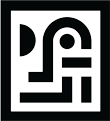Felicity loved her work. It gave her a real sense of purpose as she loved books and reading. So, working in a Publishing House was her dream job come true.
The only downside was Felicity had not received or asked for a pay raise for over three years. This was despite the fact that her work load had increased.
Initially, Felicity tried to ignore it, reasoning in her mind that money didn’t really matter and that she just loved her job. However, her living expenses and increased bills were telling her a different story. Felicity was also aware that her job description commanded a higher pay grade than what she was currently receiving.
However, Felicity was reluctant to ask and negotiate a pay rise because she was afraid that she did not know enough. She reasoned that perhaps she had not proven herself in her job, and that she would be “caught out” as an “imposter” in her work.
This feeling of being a “fraud” and not really belonging stopped Felicity asking for her well-deserved pay raise and kept her stuck in the story of “I feel like an imposter”.
The experience of feeling like a fraud is not uncommon as many people suffer from feelings of inadequacy and self-doubt. They feel that what they have achieved is not because they are creative, intelligent, or talented, but rather, it is because they were lucky, had good timing, or were just in the right place at the right time.
This is what physiologists describe as the imposter phenomenon, or imposter syndrome, and it is the overwhelming feeling that you don’t deserve your success.
Unfortunately, this perceived view of your inadequacies can lead to you playing small, revising your goals to becoming less ambitious, and preventing yourself from realising your true potential.
Until recently, it had always been viewed that imposter syndrome was a debilitating and limited belief, but new evidence is now rethinking this belief.
Recent research shows that having self-doubt in your abilities allows you to perform better and to try harder. It also invites you to revise and gain more knowledge, to want to learn more, and make progress. Most importantly, it shows that you have self-awareness and that you are aware and know your weaknesses.
So, this week’s challenge is to become more self-aware. Write down what you do know about your abilities and your strengths together with writing down what you do not know, such as your weaknesses and what you have to learn. This can apply to your work or to a new goal you wish to achieve. Once you have done this, take a moment to acknowledge and celebrate your achievements. Conversely look at what you need to learn and make the decision to take action to learn what you do not know. Allow yourself and your confidence to grow with learning and taking action.
Do not allow imposter syndrome to hold you back. Rethink your self-doubt and inadequacies. Become more self-aware and know that the quest for learning and gaining knowledge is never ending.
Celebrate all your achievements. Record and review your achievements and the praise you receive constantly. Learn to enjoy your success—you have earned it.
Forever creating
Deborah Ruth








A fascinating discussion is worth comment. I do believe that you should write more about this subject matter, it may not be a taboo subject but typically folks dont talk about such issues. To the next! Cheers!!
Thanks Tyler for your encouraging comments.